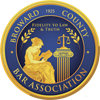Fighting for You
Drug Trafficking
Trafficking in controlled substances are the most serious of the drug related crimes and Florida imposes very punitive minimum-mandatory prison sentences for this type of offense.
Dave Simmons, at the Law Offices of Dave L. Simmons, P.A. understands that his clients are facing the most serious of penalties including long prison sentences. Attorney Dave Simmons is an experienced Fort Lauderdale Drug Trafficking Lawyer and is committed to protecting the rights of clients facing these charges and will work tirelessly to get the most favorable results possible.
Some of the most commonly charged crimes in Florida involving Trafficking including the applicable penalties in controlled substances include:
Trafficking in Cannabis: is defined by Fla. Stat. 893.135(1)(a), as knowingly possessing, selling, purchasing, manufacturing, delivering, or transporting, (1) 25 pounds or more of cannabis; or (2) 300 or more cannabis plants. Trafficking in Cannabis is a First Degree felony punishable by a maximum penalty of 30 years Florida State Prison. Florida, however, has implemented minimum-mandatory prison sentences for Drug Trafficking Offenses A person charged with Trafficking in Cannabis faces minimum mandatory prison sentences based on the weight of the Cannabis.
- Three (3) years Florida State Prison/$25,000 fine for 25 to 1,999 pounds of Cannabis, or 300 to 1,999 cannabis plants.
- Seven (7) years Florida State Prison/$50,000 fine for 2,000 to 9,999 pounds of cannabis; or 2,000 to 9,999 cannabis plants.
- Fifteen (15) years Florida State Prison /$200,000 fine for 10,000 pounds or more of cannabis; or 10,000 pounds or more of cannabis; or 10,000 or more cannabis plants.
- Pursuant to Fla. Stat. 322.055 any person who is convicted of the sale or Delivery of Cannabis shall have their Driver’s License revoked for a period of (1) year by the Florida DHSMV.
Professional License Suspension
Pursuant to Fla. Stat. 893.11, any person convicted of Trafficking in Cannabis will be subject to the immediate suspension of any Professional License issued by State of Florida that authorizes the practice of a profession or trade.
Trafficking in Cocaine: is defined by Fla. Stat. 893.135(1)(b), as knowingly possessing, selling, purchasing, manufacturing, delivering, or transporting, 28g or more of any mixture containing Cocaine. Trafficking in Cocaine is a First Degree Felony punishable by a maximum penalty of 30 years Florida State Prison. Florida, however, has implemented minimum-mandatory prison sentences for Drug Trafficking Offenses A person charged with Trafficking in Cocaine faces minimum mandatory prison sentences based on the total weight of the Cocaine.
- Three (3) years prison/$50,000 fine for 29 to 199 grams of Cocaine
- Seven (7) years prison/$100,000 fine for 200 to 399 grams of Cocaine
- Fifteen (15) years prison/$259,000 fine for 400 grams to 149 kilograms of cocaine
- Pursuant to Fla. Stat. 322.055 any person who is convicted of the sale or Delivery of Cocaine shall have their Driver’s License revoked for a period of (1) year by the Florida DHSMV.
Professional License Suspension
Pursuant to Fla. Stat. 893.11, any person convicted of Trafficking in Cocaine will be subject to the immediate suspension of any Professional License issued by State of Florida that authorizes the practice of a profession or trade.
Trafficking in Oxycodone: is defined by Fla. Stat. 893.135(1)(c) as knowingly possessing, selling, purchasing, manufacturing, delivering or transporting; 4g or more of any mixture containing Oxycodone. Trafficking in Oxycodone is a First Degree Felony punishable by a maximum penalty of 30 years Florida State Prison. Florida, however, has implemented minimum-mandatory prison sentences for Drug Trafficking Offenses. A person charged with Trafficking in Oxycodone faces minimum mandatory prison sentences based on the weight of the Oxycodone.
- Three (3) years Florida State Prison/$50.000 fine for 4 to 13 grams of Oxycodone
- Fifteen (15) years Florida State Prison/$100,000 fine for 14 to 27 grams of Oxycodone
- Twenty-Five (25) years Florida State Prison/$500,000 fine for 28g to 29 kilograms of Oxycodone
- Pursuant to Fla. Stat. 322.055 any person who is convicted of the sale or Delivery of Cocaine shall have their Driver’s License revoked for a period of (1) year by the Florida
Professional License Suspension
Pursuant to Fla. Stat. 893.11, any person convicted of Trafficking in Oxycodone will be subject to the immediate suspension of any Professional License issued by State of Florida that authorizes the practice of a profession or trade.
Trafficking if Hydrocodone: is defined by Fla. Stat. 893.135(1)(c)(1) as knowingly possessing, selling, purchasing, manufacturing, delivering, or transporting; 4g or more of any mixture containing Hydrocodone. Trafficking in Hydrocodone is a First Degree Felony punishable by a maximum penalty of 30 years Florida State Prison. Florida, however, has implemented minimum-mandatory prison sentences for Drug Trafficking Offenses A person charged with Trafficking in Cocaine faces minimum mandatory prison sentences based on the total weight of the Hydrocodone.
- Three (3) years Florida State Prison/$50.000 fine for 4 to 27 grams of Oxycodone
- Fifteen (15) years Florida State Prison/$100,000 fine for 14 to 27 grams of Oxycodone
- Twenty-Five (25) years Florida State Prison/$500,000 fine for 28g to 29 kilograms of Hydrocodone
- Pursuant to Fla. Stat. 322.055 any person who is convicted of the sale or Delivery of Cocaine shall have their Driver’s License revoked for a period of (1) year by the Florida DHSMV.
Professional License Suspension
Pursuant to Fla. Stat. 893.11, any person convicted of Trafficking in Hydrocodone will be subject to the immediate suspension of any Professional License issued by State of Florida that authorizes the practice of a profession or trade.
Defense to Drug Trafficking
If you have been charged with any of the above-related offenses, you may feel overwhelmed by the situation. As an experience Fort Lauderdale Drug Trafficking Attorney, It is the goal of the Law Offices of Dave L. Simmons, P.A. to have your case dismissed or the charges reduced to a lesser offense by utilizing various defense strategies including:
Illegal Search and Seizure without a Warrant: The Fourth Amendment to the United States Constitution protects against unreasonable searches and seizures and generally requires a warrant signed by a Judge based on probable cause for a search and seizure to be lawful. However, there are exceptions to this general rule. Often in their attempt to ferret out crime, police officers infringe on citizens’ fourth amendment rights against unlawful searches and seizure without a warrant, the most often encountered search and seizure. Police officers cannot stop or detain individuals for any reason. An officer must have “Reasonable Suspicion” to detain an individual and probable cause to effectuate an arrest.
Reasonable Suspicion is defined by the Courts as information which is sufficient to cause a reasonable law enforcement officer taking into account his or her training to reasonably believe that the person being detained is, was, or was about to involved in criminal activity. The officer must be able to articulate more than suspicion or a hunch of criminal activity.
A common example of when an officer is in conflict with this “Reasonable Suspicion” standard is when an officer pulls a motor vehicle driver over for a simple traffic violation. Many times, the officer’s stop is not lawful because the Driver did not actually commit the traffic violation. Police officers often make mistakes based on fact or law. An experienced Ft. Lauderdale Criminal Defense Attorney will be able to evaluate the case and the fact pattern and see potential problems with the police investigation.
Motion to Suppress: an evidentiary hearing before the Court, could be filed in such a case. If the Court finds that the officer violated your constitutional rights, the Court would than “suppress the evidence” and preclude the State Attorney’s Office from utilizing the evidence in their case. This suppression of the evidence, known as the “Exclusionary Rule” is a very compelling ruling by the Court and often leads to the case being dismissed or the charges reduced. This type pf motion practice is invaluable to a skilled Broward Drug Charge Attorney.
Lack of Evidence: The law requires the State to prove Possession of a Controlled Substance in one of two ways: (1) Actual Possession; (2) Constructive Possession. Actual possession occurs when the controlled substance is found on his or hers’ person. Constructive Possession requires the State to prove that the controlled substance presence is within the knowledge of a person and that the individual has dominion and control of the controlled substance. Constructive Possession is a more difficult standard for the State to prove their case.
No Consent to Search: Another avenue police officers purse to conduct a warrantless search is through consent. When given proper consent, an officer may conduct a search without a warrant. The consent must come from someone authorized to give consent and the search must be within scope of the consent. However, officers often use “a show of authority” to obtain this consent. If the consent is not freely and voluntarily given, it is unlawfully obtained and subject to suppression. A skilled and experienced Ft. Lauderdale Drug Possession Attorney will evaluate your case looking for this defense.
Substantial Assistance: Although not a direct defense, substantial assistance is often utilized in Trafficking Cases to avoid or reduce the minimum-mandatory sentencing mandated by The State of Florida Sentencing Guidelines. Substantial Assistance is a “Contract” between the sentenced Defendant to provide assistance to law enforcement in the arrest, identification and conviction of other individuals engaged in trafficking in controlled substances. A skilled and experienced criminal defense attorney is paramount when this remedy is used to mitigate these type of sentences; a contract of services to law enforcement is negotiated with the State Attorney and is strictly enforced.
An experienced Broward Drug Trafficking Attorney can often leverage strong factual evidence and negotiate with the prosecution to amend the charge to a lesser included offense.
If you have been charged with Drug Trafficking in Broward County, contact Fort Lauderdale Criminal Defense Attorney, Dave Simmons, at the Law Offices of Dave L. Simmons, P.A. at (954) 765-3540






